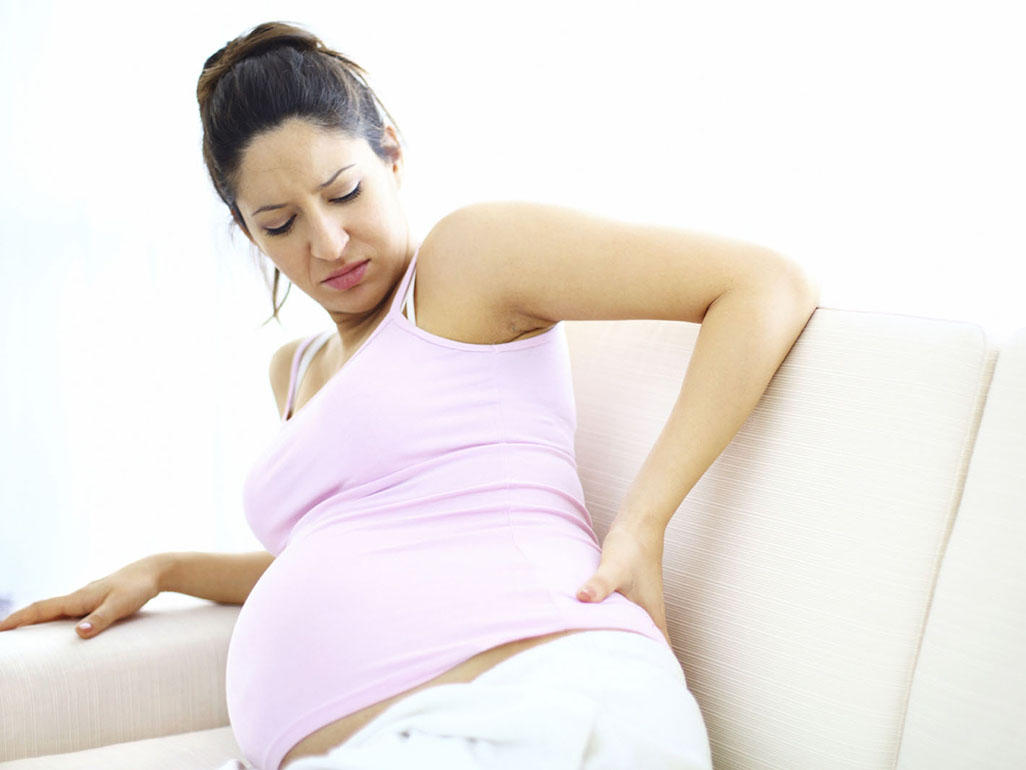Pregnancy is an exciting and transformative time for many women, but it can also come with many physical discomforts. One common issue that expectant mothers face is back pain, which can be particularly challenging to manage while trying to get a good night’s sleep. Fortunately, there are some effective strategies that pregnant women can use to relieve back pain and improve their quality of rest.
Every pregnant woman wants to know how to relieve back pain, especially while sleeping. Back pain during pregnancy can stem from various factors. The growing baby puts additional pressure on your spine and pelvic region, leading to discomfort. Hormonal changes also play a role, as they cause the ligaments in your body to loosen, leading to instability and potential misalignment of the spine. Additionally, as your body prepares for childbirth, your center of gravity shifts, altering your posture and potentially contributing to back pain.
Take the case of Sarah, a first-time mother who was thrilled when she found out she was expecting. However, as her pregnancy progressed into the second trimester, she began experiencing constant lower back pain, especially at night. She tried various remedies like heat pads and massages, but nothing seemed to work effectively. It wasn’t until she discovered some specific sleeping positions that helped alleviate her discomfort that she started getting better sleep again.
If you’re struggling with similar issues during your own pregnancy journey or know someone who is, then keep reading for our expert tips on how to relieve back pain while sleeping. We’ll provide some practical advice based on current research and real-life experiences from other pregnant women so that you can find relief and enjoy this special time in your life more fully.
Getting adequate sleep is crucial during pregnancy, as it promotes overall health and well-being for both you and your growing baby. Restful sleep aids in reducing stress levels, boosting your immune system, and supporting healthy fetal development. By addressing back pain while sleeping, you can enhance the quality of your sleep and improve your overall pregnancy experience.

How To Relieve Back Pain During Pregnancy While Sleeping
1. Choose The Right Sleeping Position
Did you know that approximately 50-70% of pregnant women experience back pain? It’s a common discomfort during pregnancy, but there are ways to alleviate it. One effective method is by choosing the right sleeping position.
Sleeping on your side is highly recommended for pregnant women as it can improve blood flow and reduce pressure on your spine. Specifically, sleeping on your left side allows better circulation to your growing fetus and organs, while also easing the weight off your lower back. Avoid sleeping on your stomach or back, as these positions can strain your muscles and cause more pain.
It may take some getting used to if you’re not accustomed to side sleeping, but investing in supportive pillows can make all the difference. Place one between your knees to align your hips and relieve tension from your lower back. You can also prop another pillow behind you for added support.
By adopting the appropriate sleep posture, you’ll be able to combat back pain at night while promoting overall comfort throughout pregnancy. However, if additional relief is needed, consider investing in a pregnancy pillow – an essential item we’ll cover next.
2. Invest In A Pregnancy Pillow
Investing in a pregnancy pillow can be a game changer for pregnant women with back pain. Not only does it provide extra support and comfort, but it also promotes proper alignment of the spine while sleeping. As a figure of speech, using a pregnancy pillow is like having your own personal sleep therapist.
There are different types of pregnancy pillows available on the market, such as C-shaped or U-shaped ones. It’s important to choose one that suits your needs and preferences. Some may prefer a firmer pillow, while others may opt for a softer one. Regardless of the type, all pregnancy pillows aim to alleviate pressure points and reduce discomfort during sleep.
Using a pregnancy pillow not only helps relieve back pain during sleep but can also improve the overall quality of rest. With better sleep comes more energy, less fatigue, and an improved mood throughout the day. If you’re struggling with back pain during pregnancy, investing in a good quality pregnancy pillow might just be what you need to get some much-needed relief before bed.
Transition into the next section: Another way to help ease back pain during pregnancy is by stretching before bed.
3. Comfortable Clothing
Wearing loose-fitting and comfortable clothing, especially during sleep, can alleviate pressure on your abdomen and back. Opt for breathable fabrics that promote air circulation and avoid tight waistbands.

4. Stretch Before Bed
As your body undergoes changes during pregnancy, it is common to experience back pain. This discomfort can make sleeping difficult and leave you feeling tired in the morning. However, there are ways to alleviate this pain and ensure a good night’s rest.
Before bed, take some time to stretch out your muscles. Gentle stretches like hip flexor stretches or pelvic tilts can help relieve pressure on your lower back and increase blood flow. Make sure not to push yourself too hard, and listen to your body’s limits.
To further reduce tension in your back while sleeping, try changing up your sleep position. Sleeping on your side with a pillow between your legs can provide support for both your hips and spine. If you’re having trouble getting comfortable, investing in a supportive mattress or foam topper may also be worthwhile.
5. Practice Good Sleep Habits
Getting a good night’s sleep can be challenging when you’re expecting. This is especially true when back pain sets in and disturbs your slumber. To help alleviate discomfort while sleeping, practicing good sleep habits becomes crucial. Some good sleeping habits are:
- Make sure to invest in a comfortable mattress and pillows that support your body properly. Sleeping on your side with a pillow between your knees helps relieve pressure from the lower back region. Additionally, avoid sleeping flat on your back, as it puts undue strain on the spine.
- Establish a bedtime routine that signals your body that it’s time for rest. Take a warm bath or shower before bed to relax muscles and ease tension in the back area. Avoid using electronics such as smartphones or tablets at least an hour before bedtime, since they emit blue light that can disrupt sleep patterns.
- Create an environment conducive to quality sleep by keeping the room dark and cool. Consider investing in blackout curtains or eye masks if necessary. Also, try not to eat heavy meals close to bedtime, as digestion can interfere with sound sleep.
6. Maintain Proper Posture
As your baby grows inside your womb, your center of gravity shifts forward. Your lower back muscles may be strained as a result of an unconscious attempt to compensate for falling forward by leaning back, which will only make your back discomfort during pregnancy worse. Keep in mind these recommendations for keeping good posture:
- Always stand upright.
- Hold your chest up.
- Keep your shoulders back and straight.
- Prevent locking of the knees.
Use a broad, comfortable stance when standing for the most support. Put one foot up on a short step stool if you must stand for a prolonged period of time. If you can, plan regular breaks to lessen the tension in your muscles.
Another element of excellent posture is careful sitting. If you find it difficult to maintain proper sitting posture, place a small pillow behind your lower back or choose a chair with additional back support.
7. Temperature and Environment
Create a sleep-friendly environment by ensuring your bedroom is cool, dark, and quiet. Use curtains or blinds to block out light, and consider using a white noise machine to mask any disturbing sounds.
Here are four additional tips for relieving back pain during pregnancy while sleeping:
- Use heat therapy such as warm compresses or heating pads.
- Avoid wearing high heels that put extra strain on the lower back.
- Take breaks throughout the day to walk around and stretch.
- Consider seeing a chiropractor or physical therapist for specialized care.
By incorporating these techniques into your bedtime routine, you can improve the quality of your sleep and reduce back pain during pregnancy.
By adopting these practices, you’ll increase your chances of having better nighttime rest during pregnancy while reducing any accompanying back pain symptoms. Remember that every woman’s experience is unique; consult with your doctor if pain persists or worsens over time instead of attempting self-treatment strategies alone.

Conclusion
In conclusion, relieving back pain during pregnancy while sleeping is crucial for the health of both mother and baby. By choosing the right sleeping position, investing in a pregnancy pillow, stretching before bed, and practicing good sleep habits, pregnant women can find comfort and relief from their back pain.
When I was pregnant with my first child, I struggled with back pain every night. However, after implementing these tips into my bedtime routine, I found that I slept better and woke up feeling refreshed. It’s like getting a full eight hours of sleep transported me to paradise, where there were no more aches or pains.
So if you’re expecting and experiencing discomfort when trying to catch some Zzzs, try out these strategies. Trust me; it’ll be worth it in the end when your little bundle of joy arrives! Remember: providing yourself with proper rest means taking care of yourself holistically- mind and body.



